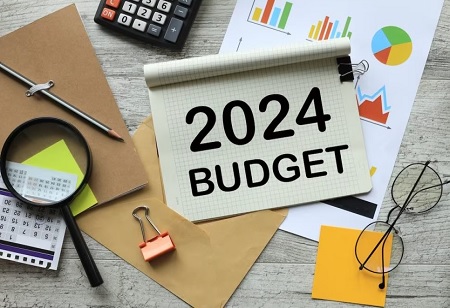
PHDCCI's Green Economy Roadmap for Budget 2024

 The PHD Chamber of Commerce and Industry (PHDCCI) has presented a detailed strategy to enhance India's green economy in its pre-budget suggestions for 2024-25. This proposal aligns with the initiatives set forth by the Indian government in the Union Budget for 2023-24, emphasizing the development of a low-carbon, resource-efficient, and socially inclusive economy. The recommendations echo Finance Minister Nirmala Sitharaman's comprehensive plan to accelerate green growth in India, encompassing initiatives such as the Green Hydrogen Mission, an increase in renewable energy capacity, a transition to ethanol blending in petrol, and a focus on battery energy storage systems.
The PHD Chamber of Commerce and Industry (PHDCCI) has presented a detailed strategy to enhance India's green economy in its pre-budget suggestions for 2024-25. This proposal aligns with the initiatives set forth by the Indian government in the Union Budget for 2023-24, emphasizing the development of a low-carbon, resource-efficient, and socially inclusive economy. The recommendations echo Finance Minister Nirmala Sitharaman's comprehensive plan to accelerate green growth in India, encompassing initiatives such as the Green Hydrogen Mission, an increase in renewable energy capacity, a transition to ethanol blending in petrol, and a focus on battery energy storage systems.
In a notable move towards sustainable transportation, the budget has waived customs duties on machinery used in the manufacturing of lithium-ion cells. Initiatives like PM KUSUM and the GOBARdhan Scheme have been implemented to secure energy for farmers and tap into biogas potential. Additionally, the Vehicle Scrappage Policy and the PRANAM initiative target pollution reduction and natural farming promotion, aligning with India's aim for net-zero carbon emissions by 2070.
PHDCCI President Sanjeev Agrawal stressed the need to embed environmental sustainability in government decision-making, stating, "Integrating environmental sustainability into decision-making is crucial for propelling India towards a future of green growth and sustainable development". He emphasized the significance of green budgeting, wherein government departments showcase their eco-friendly initiatives through environmental budget statements.
PHDCCI's recommendations also address the importance of addressing data gaps through existing management information systems, mobilizing finance beyond public funding, and launching pilot projects in renewable energy and waste management. These projects are essential for showcasing and scaling sustainable technologies. Furthermore, PHDCCI underscores the significance of capacity building in financial, technical, and institutional sectors. It calls for a comprehensive understanding of socio-economic transitions, including preparing for urbanization, adapting to changes in economic structures, and prioritizing skill development in sectors crucial for green growth, such as renewable energy, construction and industry.